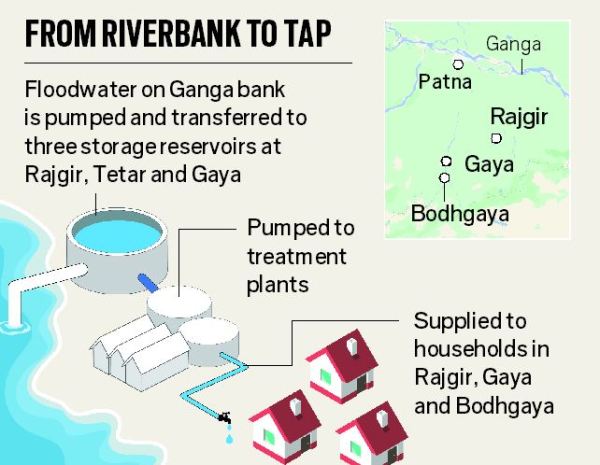Israeli-Indian horticultural partnership expands with two new centers in Bihar
5 min readAs part of a three-year program dedicated to improving agricultural practices in India, an Israeli government partnership project has opened up two new centers of excellence in the state of Bihar, as the latest ‘schools of agriculture’ to be added to several other centers dotted around the country. At www.freshfruitportal.com, we take an in-depth look into the work of this Israel-India alliance that is literally bearing fruit in the second most populated country in the world.
India’s National Horticulture Mission (NHM) chose Israel as its partner for the second phase of the country’s green revolution mainly because the country has mastered the art of developing sustainable agriculture and rural development under arid climatic conditions.
Transitioning from an undeveloped state in the 1950s to becoming a new member of the Organization for Economic Co-operation and Development (OECD) in 2010, Israel is dedicated to sharing the first-hand experience in agricultural development with other developing countries via its agency for international development cooperation, MASHAV.
After signing an official MoU (Memorandum of Understanding) a few years ago, Israeli-Indian relations have been cemented.
It is generally accepted that India has achieved self-reliance and the agriculture focus now is on honing the skills, techniques and methods used in Israel in a bid to advance productivity and drive best practices across Indian states, as well as diversifying the food basket.
Ultimately 28 centers of excellence will be operating across the country. So far several of these have been opened and are functioning successfully, while others are in the planning stages and some will be coming to fruition later this year and into 2015.
The latest two centers are based in the state of Bihar in the eastern region, where there are significant levels of mango and litchi production in Vaishali, and growers of vegetables such as cauliflower, cabbage, eggplant and okra in Nalanda.
These centers will provide a suitable platform for ‘the rapid transfer of technology’, according to an Israeli Ministry of Foreign Affairs document shared with www.freshfruitportal.com.
“Know-how and new agricultural technologies such as protected cultivation, drip irrigation and fertigation are demonstrated at the centers with the aim to be adopted by the farmers,” the document says
“This is done in order to increase their yields and productivity and also to improve the quality of produce. This can result in a positive impact on the income of the farmers and market prices, as well as introducing new varieties.”
The centers of excellence are jointly set up according to the requirements and needs of the Indian Government and address both small and large farm holders, thus offering a wide range of agricultural practices; from hi-tech poly-houses to walking tunnels and net houses.
In Bihar the focus remains on mangoes, litchi and various vegetables with the single most important commercial aspect being to teach Indian farmers how to produce healthy, virus- and pest-free crops of high quality.
“A high quality seedling is a base for a healthy plant and high yield. The goal is to expose the farmers to the highest quality and to its benefits so they will demand it from private nurseries,” the report continues.
A vegetable success story
The first center of excellence to open under the Indo-Israeli framework was in Gharaunda in Haryana State which now serves as a model for other outlets.
At the heart of the project is a plant nursery which produces lakhs (hundreds of thousands) of vegetable plug seedlings annually, utilizing plug-seedling technology which entails young plants grown in small, individual cells, ready to be transplanted into containers or a field.
The seedlings include hybrid seeds of tomatoes, cherry tomatoes, colored bell peppers, chili peppers, cucumbers and eggplants. Each year, several hybrid seeds from domestic and international commercial companies are tested in the center.
The nursery has the capacity to produce grafted vegetables and has educated farmers to such an extent that vegetable production is already being directly affected.
Doctor Satyender Yadav is head of vegetable cluster at the center of excellence in Karnal.
“With the Israeli technology we managed to increase the harvest period of various vegetables from three to nine months,” he says in the report.
“We also managed to introduce in Haryana new varieties such as cherry tomato and colored capsicum. This contributed significantly to the income of the local farmers of Haryana.”
More than 20,000 farmers visit the center every year and during its first three years of operation, crop production has risen dramatically.
For instance, three years ago tomato yields in the state were around 16,000kg (35,274lbs) per acre grown in an open field compared with a 96,000kg (211,644lbs) per acre yield these days thanks to protected cultivation methods.
Likewise, cucumber production has gone up from around 3,500kg (7,716lbs) per acre in open fields to 45,000kg (99,208lbs) per acre and bell peppers have increase from 12,000kg (26,455lbs) in open fields to 72,000kg (158,733lbs) per acre of protection cultivation.
Over the same time period, there was also a reduction of 65% of water use, thanks to the use of computerized irrigation systems.
Officials hope these statistics will be simulated in the new Bihar centers.
Major mango rejuvenation
Similarly at the center of excellence in Dapoli in Maharashtra State, old mango orchards have seen 20 to 60-year-old trees going through a process of rejuvenation where saplings are planted between the mango trees, thus increasing the density of the planted orchard from 100 trees per hectare to 400 trees per hectare.
In just two years the treated trees are producing fruit with a higher weight and better color, and will be expected to produce much greater yields in the coming years.
“The centers in Bihar are part of our work plan to open 28 centers of excellence across eight states in India,” Embassy of Israel in India spokesperson Ohad Horsandi told www.freshfruitportal.com.
“So far, 20 are in various stages of operation and the rest are in the planning stages. A few weeks back we started the process of working on the next three year work plan (2015-2018).
“We have received good feedback from the Ministry of Agriculture and the respective department of horticulture in the participating states.”
Courtesy: FreshFruitPortal.com


